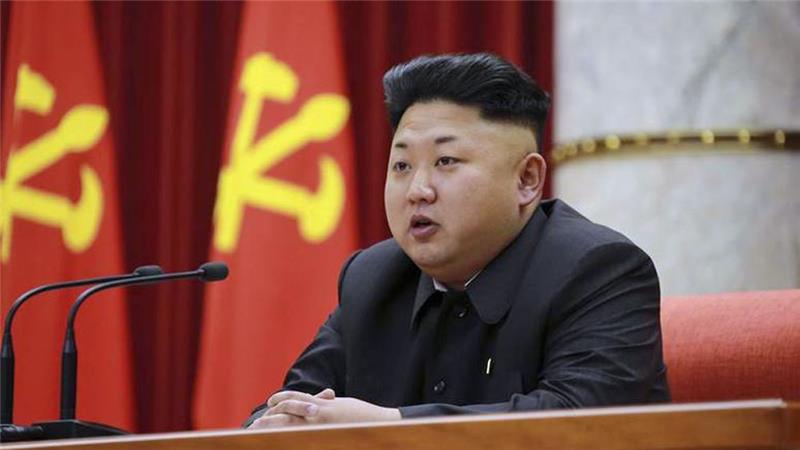North Korean leader Kim Jong-un has confirmed he will attend celebrations in Russia in May marking the Soviet victory over Germany in World War II, South Korea’s Yonhap news agency said, citing a Kremlin spokesman.
The trip would mark Kim’s first official foreign trip since taking power in 2011 after the death of his father, Kim Jong-il. The celebrations would be attended by a host of world leaders, including Chinese President Xi Jinping.
Yonhap said the Kremlin, responding to an emailed query, said 20 leaders had confirmed their attendance so far.
According to Yonhap, the Kremlin response also noted that the confirmation process was “still ongoing” and a final list of participants had yet to be drawn up.
According to AFP, Russia only confirmed that a North Korean leader would attend the celebrations, but did not specify who yet.
If Kim Jong-un does make Moscow the destination of his first foreign trip, it would reflect a desire to reduce his country’s dependence on China, which remains Pyongyang’s main ally, diplomatic protector and economic safeguard. Russia is one of North Korea’s few allies, along with China.
Xi Jinping and Kim have kept their distance since each assumed power and Xi’s first visit as head of state to the Korean peninsula was to the capitalist South last year, rather than the North.
South Korean president invited
South Korean President Park Geun-hye has also been invited to the Moscow event, but has yet to announce whether she will attend.
Both have opposed the United Nations’ call for Pyongyang to be referred to the International Criminal Court over its human rights record.
The late North Korean leader Kim Jong-il visited Russia in August 2011 in his personal train for a rare meeting with then Russian President Dmitry Medvedev.
Russia is seeking to expand economic ties with North Korea and is eyeing a project worth about $25bn to overhaul the country’s railway network in return for access to mineral resources.
Russia has also pushed ahead with plans for natural gas projects with North Korea in the hope of boosting gas exports to Asia and exporting coal to South Korea through an experimental consortium based in the North.
Source: Agencies

























